第20章
Mais comment en expliquer les phénomènes, sans ce commode rapport de parties, qui rend si bien raison des ressemblances des enfants, tantôt au père, et tantôt à la mère? D'un autre côté, l'embarras d'une explication doit-elle contrebalancer un fait? Il me parait que c'est le mâle qui fait tout, dans une femme qui dorrt, comme dans la plus lubrique. L'arrangement des parties serait done fait de toute éternité dans le germe, ou dans le ver même de l'homme. Mais tout ceci est fourt au-dessus de la portée des plus excellents observateurs. Comme ils n'y peuvent rien saisir, ils ne peuvent pas plus juger de la mécanique de la formation et du développment des corps, qu'une taupe du chemin qu'un cerf peut parcourir.
We are veritable moles in the field of nature; we achieve little more than the mole's journey and it si our pride which prescribes limits to the limitless. We are in the position of a watch that should say (a writer of fables would make the watch a hero in a silly tale): ``I was never made by that fool of a workman, I who divide time, who mark so exactly the course of the sun, who repeat aloud the hours which I mark! No! that is impossible!'' In the same way, we disdain, ungrateful wretches that we are, this common mother of all kingdoms, as the chemists say. We imagine, or rather we infer, a cause superior to that which we owe all, and which truly has wrought all things in an inconceivable fashion.
No; matter contains nothing base, except to the vulgar eyes which do not recognize her in her most splendid works; and nature is no stupid workman. She creates millions of men, with a facility and a pleasure more intense than the effort of a watchmaker in making the most complicated watch. Her power shines forth equally in creating the lowliest insect and in creating the most highly developed man; the animal kingdom costs her no more than the vegetable, and the most splendid genius no more than a blade of wheat. Let us then judge by what we see of that which is hidden from the curiosity of our eyes and of our investigations, and let us not imagine anything beyond. Let us observe the ape, the beaver, the elephant, etc., in their operations.
If it is clear that these activities cannot be performed without intelligence, why refuse intelligence to these animals? And if you grant them a soul our are lost, you fanatics! You will in vain say that you assert nothing about the nature of the animal soul and that you deny its immortality. Who does not see that this is a gratuitous assertion; who does not see that the soul of an animal must be either mortal or immortal, whichever ours is, and that it must therefore undergo the same fate as ours, whatever that may be, and that thus in admitting that animals have souls, you fall into Scylla in an effort to avoid Charybdis?
Break the chain of your prejudices, arm yourselves with the torch of experience, and you will render nature the honor she deserves, instead of inferring anything to her disadvantage, from the ignorance in which she has left you. Only open wide your eyes, only disregard what you cannot understand, and you will see that the ploughman whose intelligence and ideas extend no further than the bounds of his furrow, does not differ essentially from the greatest genius, --- a truth which the dissection of Descartes's and of Newton's brains would have proved; you will be persuaded that the imbecile and the fool are animals with human faces, as the intelligent ape is a little man in another shape;